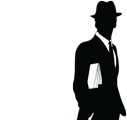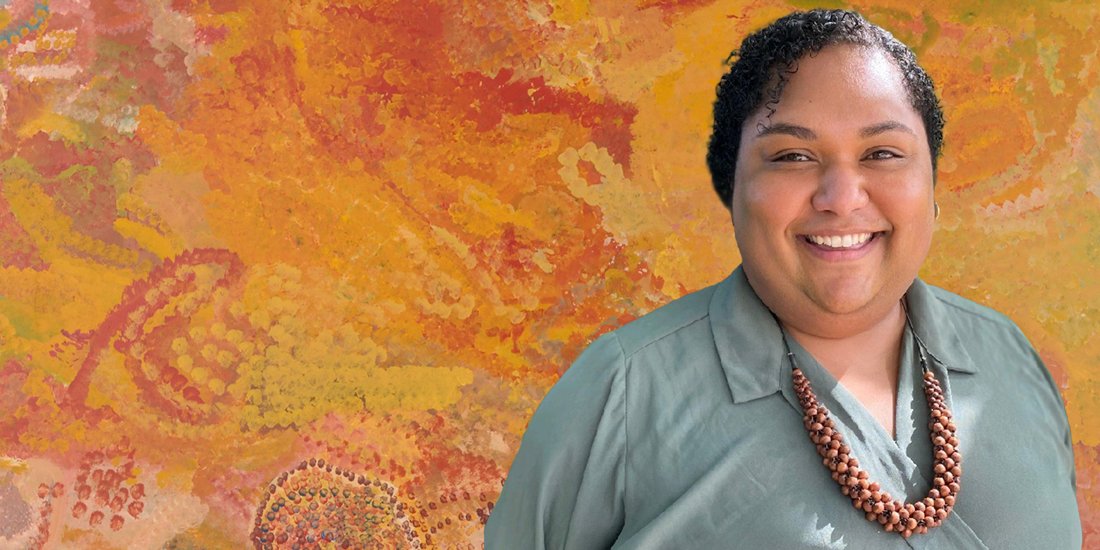Stacee Ketchell, leading advocate and charity co-founder
As far as I’m concerned, these polls are not reflective of what we are seeing on the ground and the overwhelming support that we have
When leading advocate and charity co-founder Stacee Ketchell, 32, talks to The New Daily the outlook for those in the Yes camp of the Indigenous Voice to Parliament referendum isn’t looking positive. We speak as a poll shows that support has dropped to new lows, with every state except Tasmania poised to vote No. However, the 32-year-old says she has ignored all polling results so far and has no intention of changing, until the final referendum result speaks for itself on October 14.
“As far as I’m concerned, these polls are not reflective of what we are seeing on the ground and the overwhelming support that we have,” Stacee said. “I don’t know what they are even saying about the latest poll because I just ignore it, to be honest.” The Cairns-based campaigner is the main organiser for the Yes23 movement for Far North Queensland after joining in May this year. The proud Waikaid and Meuram woman from the Torres Strait Islands says it’s the influence of her parents that has always motivated her to help others. Along with her four siblings the family lived on Thursday Island, about 39 kilometres north of Cape York Peninsula, with their parents working hard to improve the lives of those in their community and beyond. “My parents have always been in community advocacy and leadership,” Stacee said. “My dad worked in the maritime industry and advocates for the rights of traditional fishermen using traditional methods and my mum is a long-time educator in Indigenous education. “I come from a long line of leaders and advocates who have done a lot of community work.”
In 2016, Stacee co-founded the Indigenous youth charity DIYDG (Deadly Inspiring Youth Doing Good) where she developed her leadership and advocacy for social change throughout remote FNQ communities. As a co-founder, Stacee says she understands first hand the power of organisations like DIYDG, that empower young people to challenge the stereotypes and change the narrative that currently exists. “I was a young person when we first established the charity and our voices weren’t being heard and there was very limited platforms for us as young people.”
With a vote on the Indigenous Voice to Parliament only weeks away, advocate and charity co-founder Stacee Ketchell tells us what the looming referendum on October 14 means to her.
Please share with us how you are voting for The Voice – and why?
I’m proud to be voting Yes and I’m looking forward to voting Yes come referendum day. We live in a very tough place in the far north and we have great support here for the Yes vote. I was out with some supporters over the weekend and, for me, I feel it’s best when it’s just being available for people to ask questions. There is a lot of fear mongering and a lot of false information out there, so sometimes just a one-on-one chat is the most powerful thing I can offer. Luckily people are seeing the fear mongering for what it really is. They are seeing that the Voice is a simple ask for all Australians to recognise us and allow us to provide advice on issues that matter to Aboriginal and Torres Strait Islander people. This request for the Voice did not come from government. It came from our communities because we need it.
What does a Voice to Parliament mean to you personally, and what significant impact might it have for you?
For me personally, it means our stories and experiences and injustices on the ground are amplified and listened to. I know from personal experience growing up the challenges of living in remote communities. I know about the issues around inequality and the lack of health care, road infrastructure, clean drinking water and all the other issues that are basic human rights. With the Voice these issues that I care deeply about can be amplified at the highest level to the people making those decisions. I truly believe all Australians want to see change and want better outcomes for us as well.
What do you believe will be the main effects of a Yes vote for Australia?
I think it’s when we are helping the decision makers become better informed, we know we get better outcomes. Growing up in remote areas means it’s very hard to advocate and be heard sometimes. So for politicians to feel, see and hear what it’s truly like for families in communities is vital. We want our voices to have a direct effect and not just filter through and be watered down. We know what we need to do and how to improve things and that’s the important part.
If it fails, how will you feel and what will that mean?
I try not to think about failure because it would be devastating. Because that means we would have to keep advocating for our rights. It would be a feeling of helplessness because we would have to keep the fight going. What other choice would we have? I fear if the Voice doesn’t get voted for it could also be very damaging in regards to the mental health of many Indigenous Australians. It would be a massive blow. We would, of course, need to continue fighting in order for our future generations to come through and succeed. We know we have a collective of young people across the country who would continue the advocacy that many have done before us. Overall though, I feel positive about the Yes support in our communities and across the country, because I genuinely believe Australians want to be a more unified country. And acknowledging our First People is a simple request.
How has it been, as an Indigenous Australian, to be subject to a heated national debate such as this?
It’s frustrating and upsetting at times. But I know I come from a strong line of leaders and community elders that have been calling for this recognition for a long time, so it’s important I help see that through for them. I remind myself I come from strong lines of leaders and never settle. And doing the work I do I see the effects on our families and young people when we are not at the decision-making table.
If you were to advise Parliament on one issue relating to Indigenous Australians, what would it be?
This is impossible to answer in many ways as there are so many competing priorities. Between overcrowded housing to heart disease and to education system failures – which one do you pick first? This is why we bid for constitutional reform as we need a Voice to be there, regardless of who is in government or in power. Because the issues we face are so complex and they can’t be reliant on government cycles.
How do you believe an Indigenous advisory body would make a difference to Australia when we have Indigenous politicians?
Indigenous politicians are elected by their constituents and their political parties. Yes, we need more Black politicians; however, our communities need to have a mechanism so they can give advice through Parliament and the decision makers at the highest level.
Could you please share any challenges in regards to your experience of growing up as an Indigenous Australian?
As a schoolgirl I was lucky to avoid any racism as such as I did all my schooling in the Torres Strait Islands. It was more the lack of access to certain opportunities and facilities, which is hard in remote areas. For me, it was very hard and challenging when I came to the bigger cities. We faced a lot of racism down south in Cairns and other parts. It was upsetting. There were so many incidents, however I decided a long time ago not to put time or energy into it. I can’t change that person who is being racist. All I can do is to keep doing what I need to do, to help forge a better future for the Indigenous youth in particular who have so much to offer this country.
This is part of a special series of interviews by our sibling sight The New Daily ahead of the 2023 referendum on the Indigenous Voice. Read the other interviews here.

